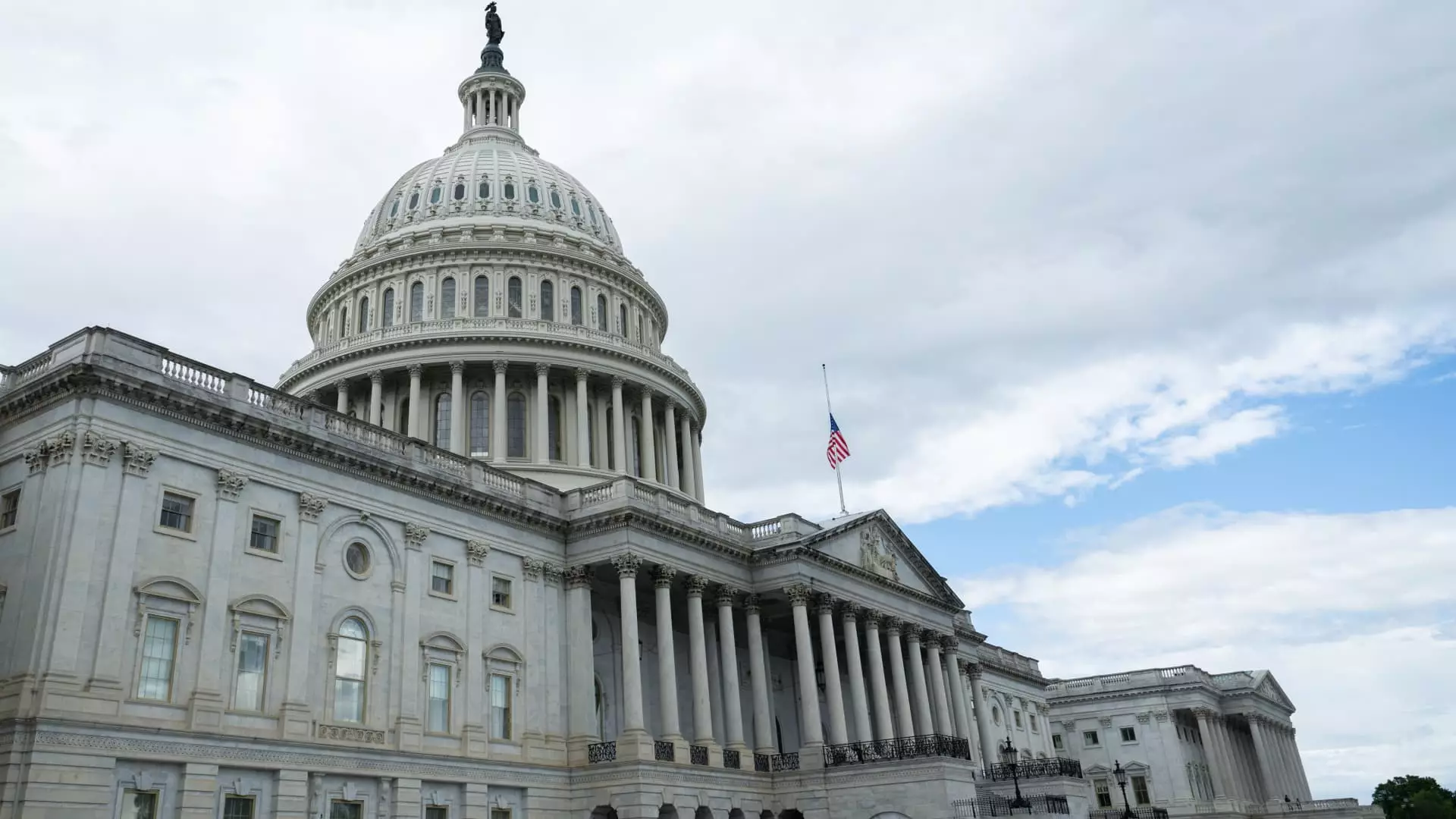The ongoing discussions regarding the Republican tax reform package, labeled the “One Big Beautiful Bill Act,” are unfolding against the backdrop of a critical financial landscape. While aiming to cut taxes significantly—mostly benefiting the affluent—this legislation is projected to exacerbate the national debt by trillions. The implications are unsettling and deserving of rigorous scrutiny, particularly from a center-right perspective.
The Reality of Ballooning Debt
The Committee for a Responsible Federal Budget estimates that the proposed bill would add approximately $3.1 trillion to the national debt over the next decade. When including interest, this figure could skyrocket to a staggering $3.8 trillion according to the Penn Wharton Budget Model. The former estimate alone could elevate the national debt to a mind-boggling $53 trillion. Such numbers sound alarming, yet they ultimately reflect a glaring truth: America is operating on borrowed time and borrowed funds.
Some Republican voices in Congress, like Rep. Thomas Massie of Kentucky, cautioned against what he labeled as a “debt bomb ticking.” His concerns resonate with a growing unease about the deterioration of fiscal responsibility within government practices. This bill not only reflects a cavalier attitude towards budgetary constraints but also risks jeopardizing financial stability, which can ripple through household budgets across the nation.
Impacts on Consumers: A Hidden Toll
While many average Americans may not perceive the rising national debt as a direct concern, the reality is starkly different. Economic experts argue that even at a subconscious level, household finances are intricately tied to the state of our national debt. Higher borrowing costs are an inevitable consequence of increased national debt; as interest rates rise, consumers will face higher costs for loans used to finance homes and cars. The correlation between U.S. Treasury yields and consumer borrowing rates creates a tricky dynamic—if government borrowing becomes riskier, the implications for ordinary citizens are immediate and profound.
Chief economists like Mark Zandi have sounded the alarm regarding the tight-knit relationships that govern these economic variables. As the government incurs more debt, consumer borrowing costs will inevitably climb, effectively tightening the financial noose on households already coping with rising inflation and economic uncertainty. As advocates of limited government, those on the center-right must consider the ethical implications of this burden, especially when it disproportionately impacts lower-income families.
The Unreliability of Tariff Policies
Proponents of the tax cuts argue that President Trump’s tariff policies could offset tax reductions intended for the wealthy. However, this perspective is fundamentally flawed. Tariffs are an unreliable source of revenue—a temporary fix that can easily be repealed by a future administration or nullified by court decisions. Betting the fiscal health of the nation on this shaky foundation is imprudent at best and reckless at worst.
The potential instability introduced by tariffs calls into question the logic behind coupling them with far-reaching tax cuts. A responsible fiscal policy would prioritize sustainable revenue sources instead of speculative strategies that leave the national economy vulnerable to shifts in political winds. Center-right thinkers should advocate for a nuanced approach that prioritizes genuine economic growth over short-term gains that contribute to national indebtedness.
The Financial Markets Are Squeezing Us
The financial markets are already showing signs of anxiety, leading to volatility in the long-term Treasury bond market. Investors are concerned that the proposed legislation could push Treasury yields upward, forcing a conundrum on bond investors: as yields rise, the market value of existing bonds decreases. This reality is an unwelcome scenario for many in the investment community and could lead to a broader decline in the stock market—affecting not only the affluent but anyone with pension plans or retirement funds tied to the market.
Consider this: for every 1% increase in the debt-to-GDP ratio, 10-year Treasury yields could rise by approximately 0.02 percentage points. If national debt projections escalate, it could position mortgage rates even higher than the already substantial figures we face today. For the prospective homebuyers and first-time buyers, these developments could render homeownership a distant dream rather than an attainable goal.
Government Action: The Time for Change is Now
While the national debt crisis is complex, it is not insurmountable. Addressing the issue heads-on calls for comprehensive reform, simplifying tax structures, and drastically reducing unnecessary spending, particularly regarding costly safety-net programs. The House Republicans’ proposed legislation, rather than being a panacea, serves to inflame issues already existing within our debt-ridden society.
The rising tide of federal debt is a sophisticated threat that requires a discerning and responsible approach to governance. A center-right perspective must prioritize both fiscal responsibility and the long-term viability of America’s economic standing. The choices made in this legislative battle will have repercussions reaching far beyond immediate political gains; they dictate the financial futures of millions of Americans and the integrity of our national economy as a whole.


Leave a Reply